Searching for Great Child Care? Ask These 9 Key Questions

Choosing the perfect child care is a big deal, and it can be stressful. You want to pick a place where your child will be happy, loved, nurtured, and safe—but it can be hard to suss out the signs of an amazing center in a single visit. Don’t worry. These nine key questions help you figure it out. Ask them at every center you visit to find your child’s home away from home!
Everyone Belongs In Our Circle
At KinderCare, we’re committed to building warm, welcoming and supportive classrooms for children of all abilities, backgrounds and experiences.
Find a center near you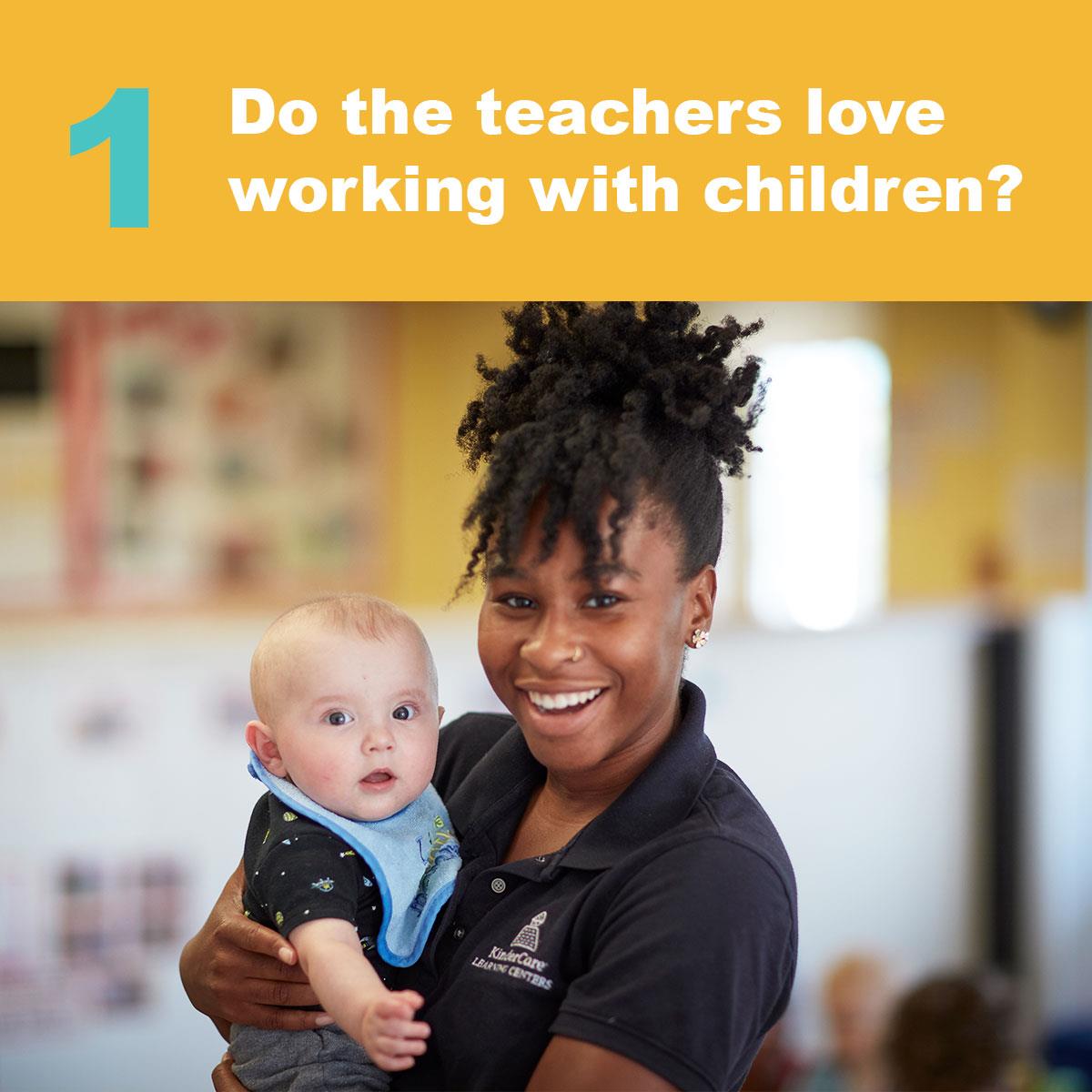
During the first few years of life, caring responses from adults are essential to building a child’s brain. When you’re visiting a center, note how the teachers interact with children: Are they kind and responsive? Do they ask big questions to encourage learning? Look for teachers who smile and babble with babies, share laughs with the kids, and physically get down to kid level when speaking with children (this shows kids that their point of view matters).

More than 70 percent of brain development happens by the age of 3, so a terrific educational approach in these early years is a must. A great learning center will have different activities and learning goals for each age group, and the staff should be able to clearly explain their education program. Ask for concrete examples of activities and how they help your child learn and grow: Is there tummy time for babies to build strength and confidence? Do group art projects help teach sharing to toddlers? Do preschoolers learn the alphabet using fun, hands-on activities?
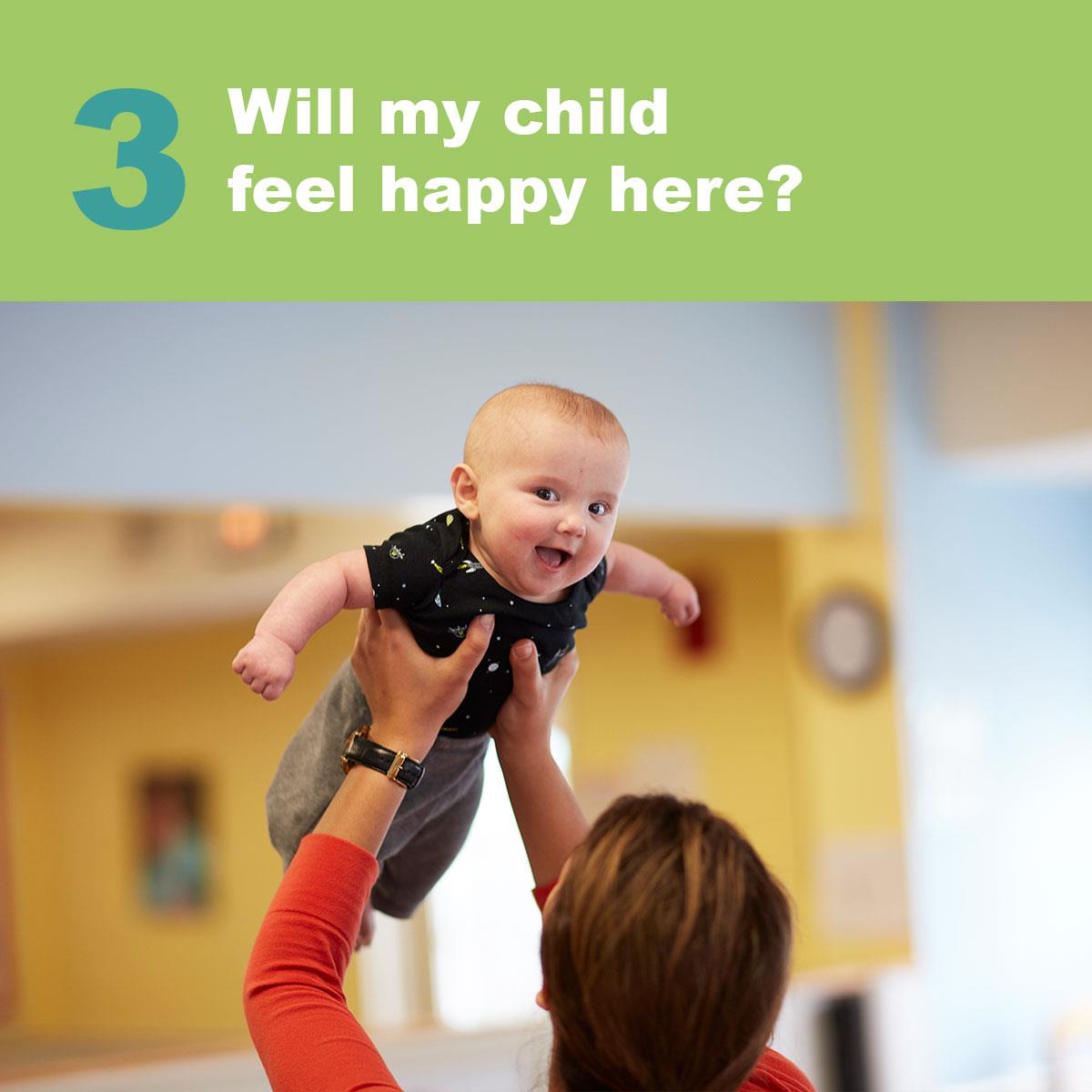
When kids are in a warm and inviting atmosphere, they feel happy and eager to learn—so when you visit, go with your gut feeling. Does this center feel welcoming? Are the children happy and thriving? Are the rooms clean, organized, and well-maintained? Is there a fun, safe place to play outside?
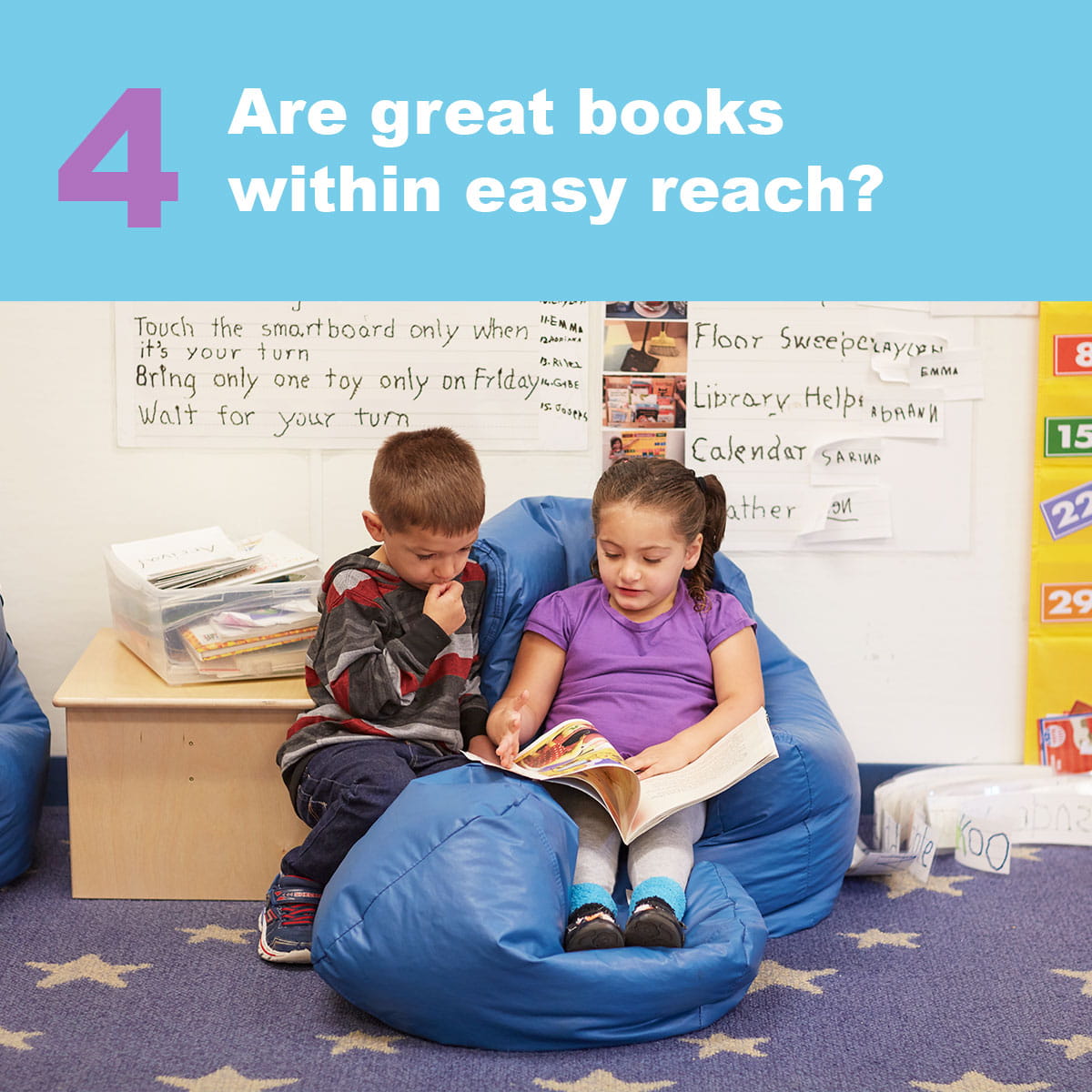
It seems like a small question, but when you’re only two feet tall, it’s a big one—and the answer can give you important info about the center. First, having good books available shows the classroom supports reading and literacy; second, having bookshelves low enough for youngsters to reach shows that a classroom is organized with children in mind. Why is this important? When children are given the freedom to choose their own books (or toys or activities), they can develop curiosity, independence, and confidence all on their own.
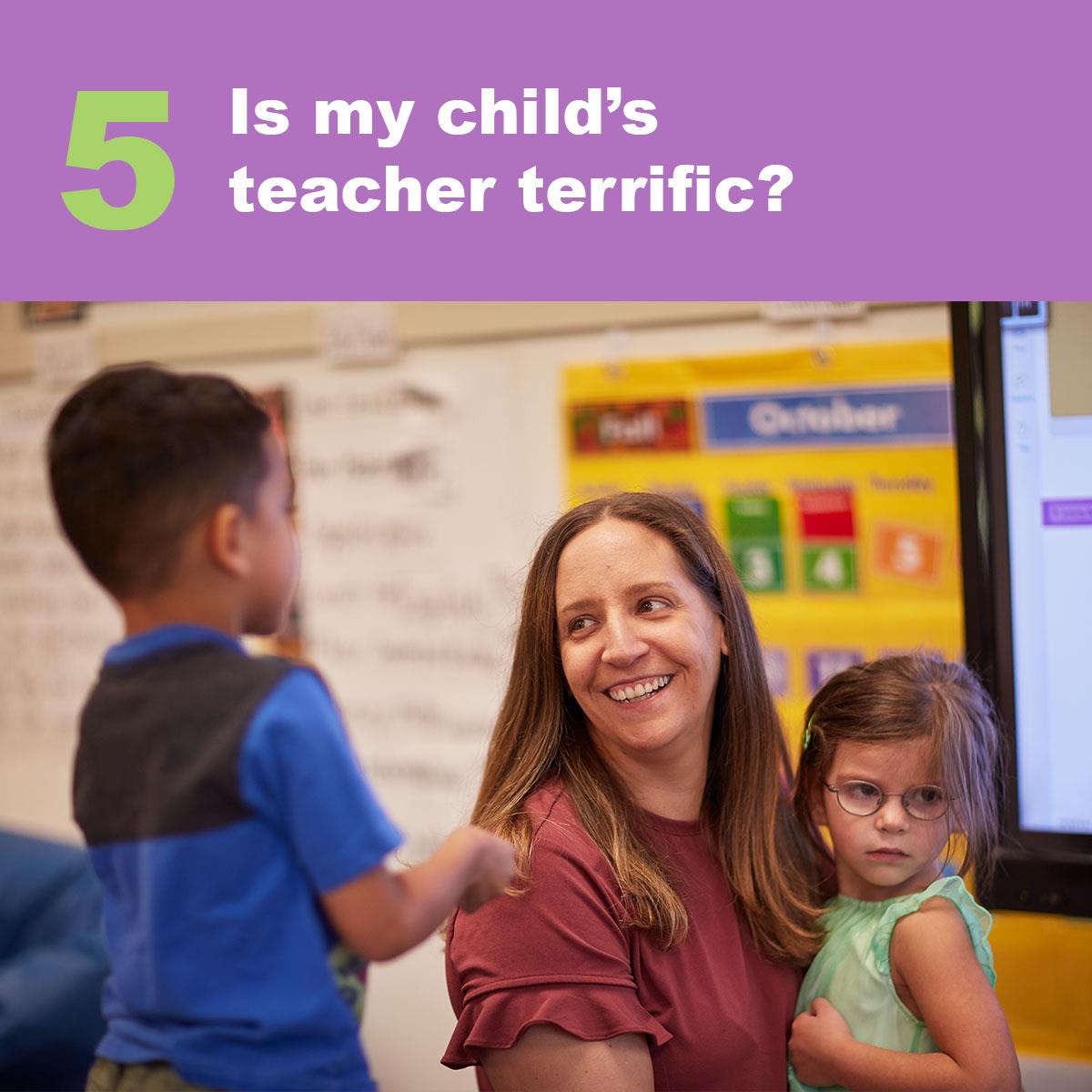
When you visit a classroom, ask the teacher how she makes reading and math fun. From silly alphabet sing-alongs to counting ladybug spots, a trained teacher will have a million great ideas. Notice if she asks kids open-ended questions like, “How did that happen?”or “What do you see?” These kinds of questions foster critical and creative thinking. You might even ask how she fosters social and emotional development—these crucial skills make it easier for children to succeed in school and are best taught during early years.
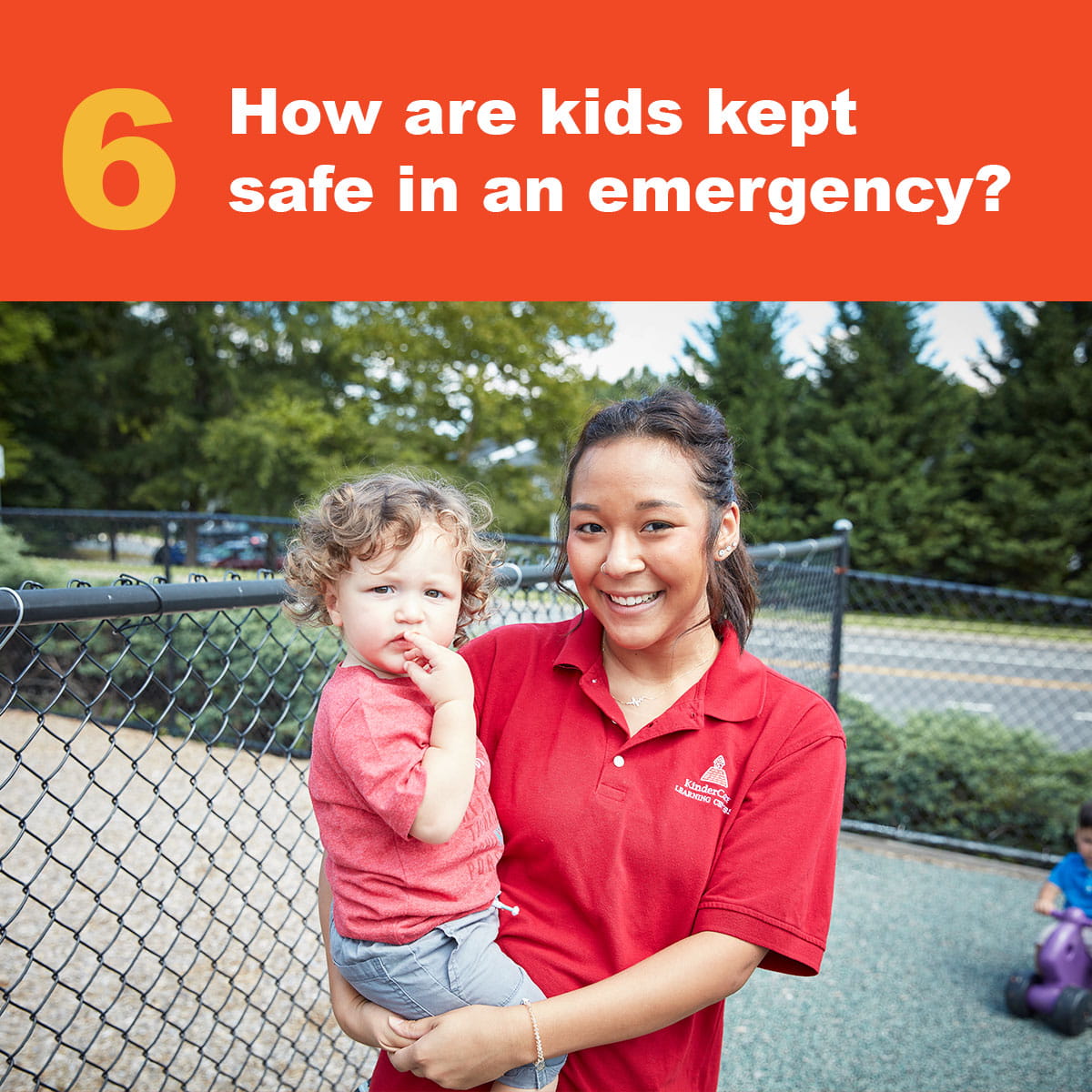
Emergencies—like floods, fires, or tornadoes—can happen at any time and your child care center should always be ready to keep children safe during a crisis. When you visit, talk to the center director about emergency preparedness. Is at least one staff member trained in first aid and CPR? Are there regular fire and disaster drills? Is the center stocked with emergency kits and ample supplies of food and water? In case of an evacuation, how will the center communicate with families? For on school safety, check out this resource from the American Academy of Pediatrics.
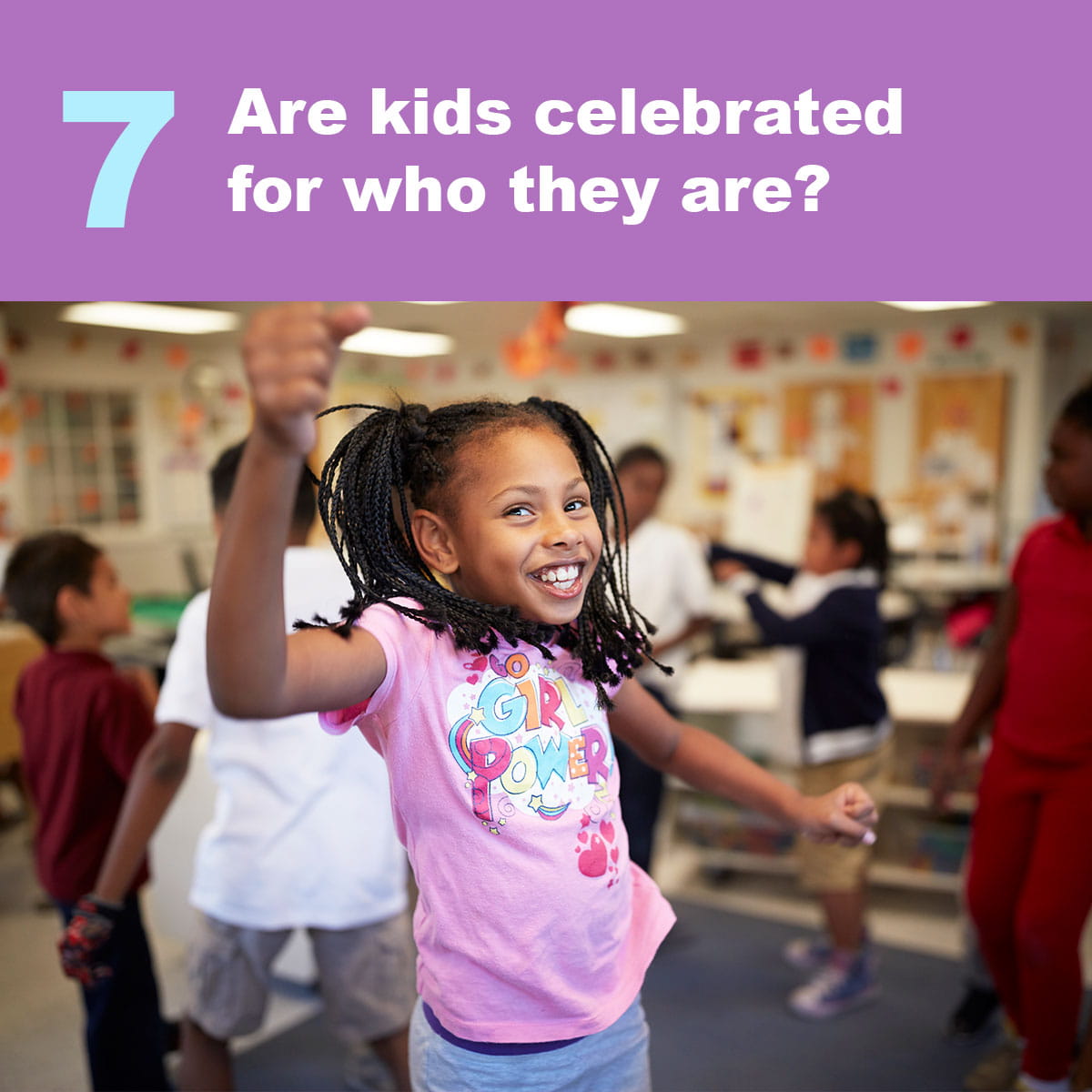
On a tour, watch to see if the teachers and center director make a genuine effort to connect with your child. Did they ask his name? Did they include him in classroom activities and ask about his interests? Were they tuned in to his feelings? When teachers celebrate the budding individuals in their classrooms—whether by diving deep into dinosaurs or by cheering on the first steps of a timid walker—they help children uncover new passions and interests, encourage independence, and teach the whole class to respect and care for others.
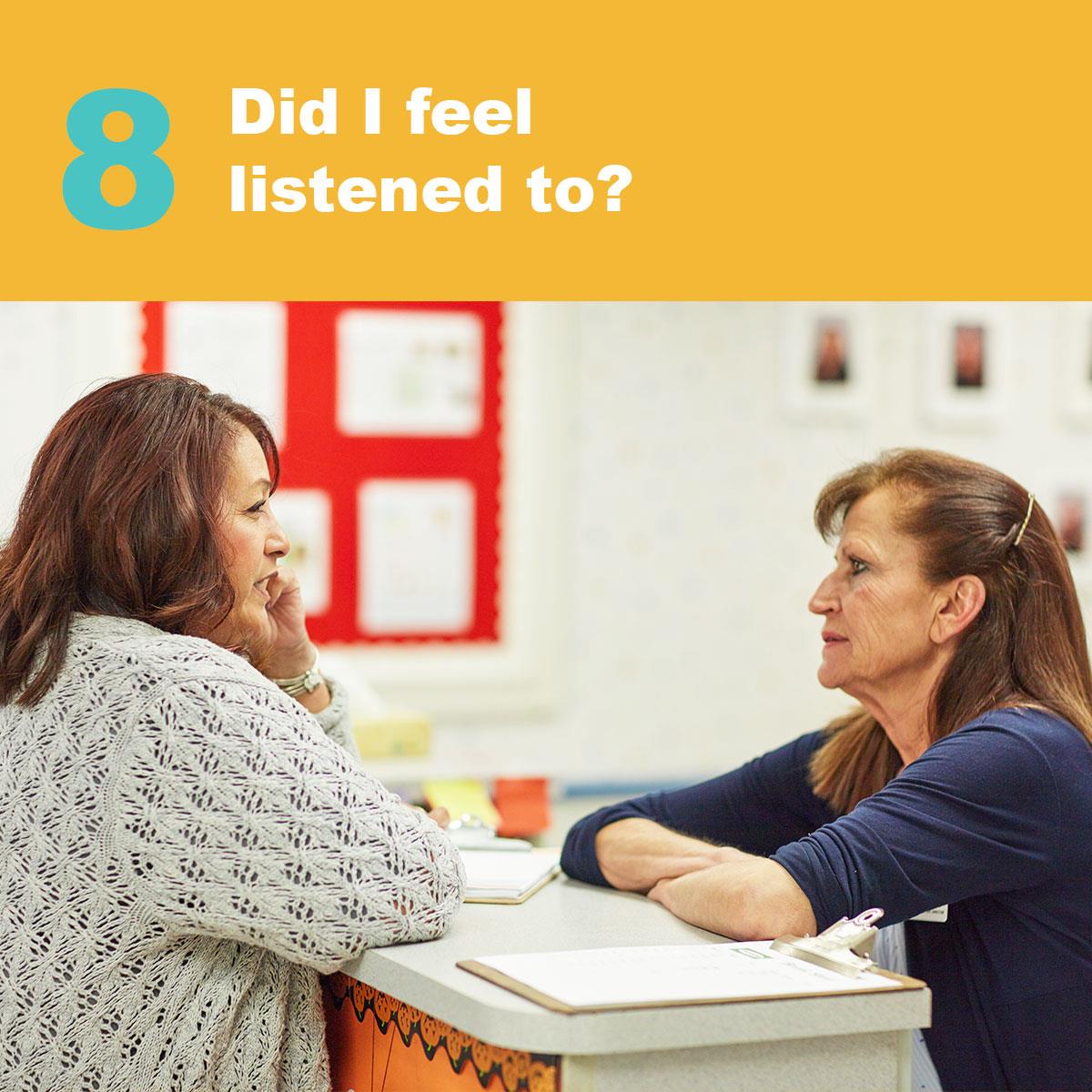
Did the center staff ask you questions? Good teachers and center directors will actively try to learn about your family’s needs and will understand and respect them—whether you’re concerned about your preschooler’s reading ability, your baby’s nap schedule, or special dietary restrictions. Did the staff respond openly and honestly to your questions? Good communication between families and center staff can help solve all sorts of daily child care challenges (from potty-training hurdles to a misplaced beloved teddy bear), so make sure that open dialogue starts with your first visit.
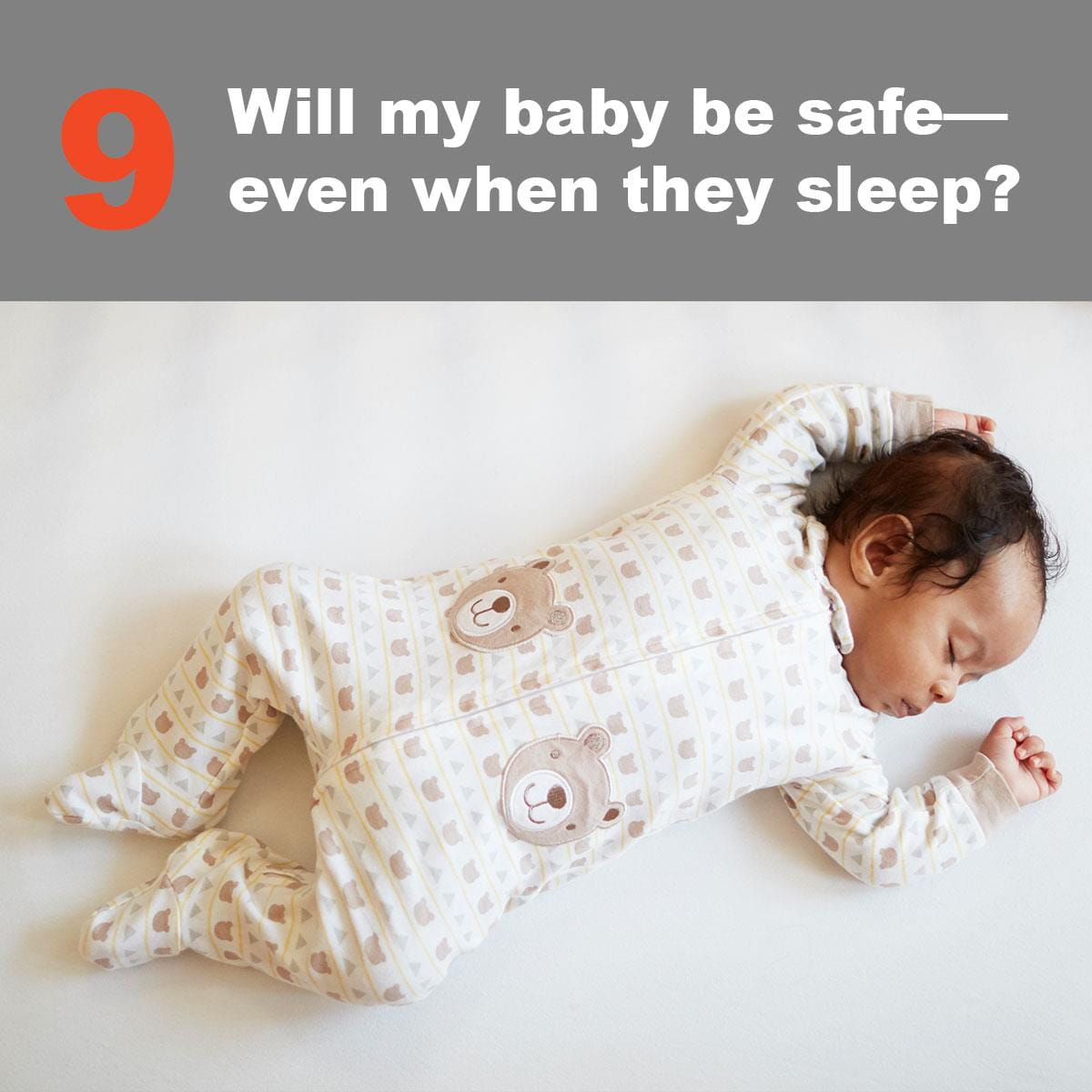
Any child care center you visit should be very knowledgeable about Safe Sleep standards of care and rigorous about practicing them (especially in the infant room). When you’re on a tour, ask teachers and center directors about their safe sleep practices: Are babies always put to sleep on their backs? Are cribs free of stuffed animals and other suffocation hazards? And most importantly—is a mindful teacher keeping watch over the children as they sleep?
A Lifetime Of Confidence Starts Here
Our teachers help every child build the confidence they need to try new things and explore the world around them.
Search for a center near you



.jpg?la=en&h=800&w=1200&hash=799F5BD6E84A71FB0D1C8E657FE7F226)
